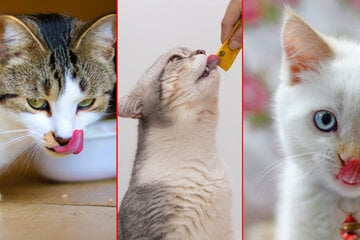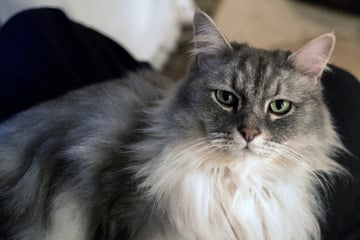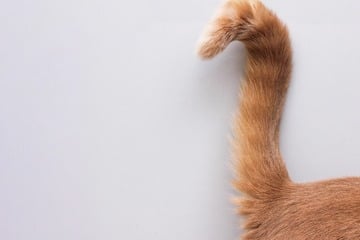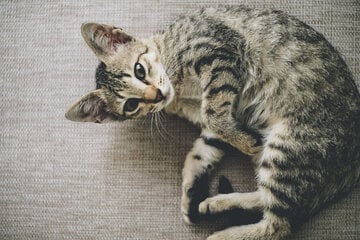My cat eats too much: How to stop a cat from eating too much
It's often said that cats are picky when it comes to food, but that couldn't be further from the truth. Many cats gobble up food with gusto, overeating and gaining weight. Here's how to stop a cat from eating too much.
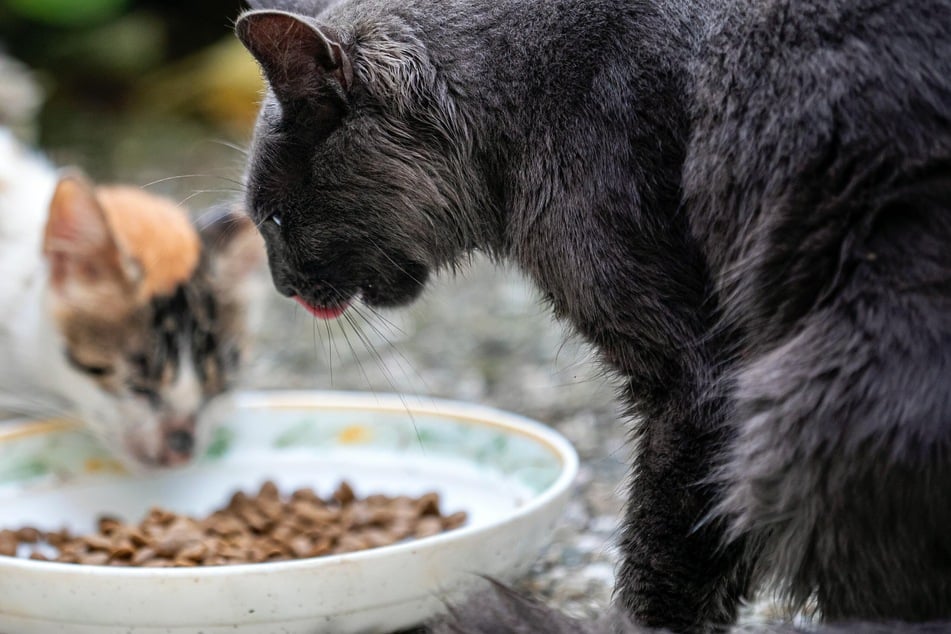
When a cat eats too much and starts looking like they're gaining weight, health problems could be further on down the road. Interestingly, cat overeating can also be caused by health problem, so either way you should take the situation seriously. What are the causes and risks of cat overeating, and what can you do about it?
In this cat guide, TAG24 will take a look at cat overeating and why cats eat too much sometimes. Let's take a look at how to stop cat overeating and some tips and tricks to improving your kitty's health.
Health consequences of cat overeating
There are many nasty consequences associated with cat overeating and the many diseases that can stem from such behavior. It's not all about obesity, though that is a significant factor in this equation, but also about joint issues, higher cancer risk, and much, much more.
Here are some potential health consequences of cat overeating:
- Diseases including diabetes, mellitus, liver disease, and various gastrointestinal conditions are directly caused by cat overeating and obesity.
- Cats can have immediate physiological responses to overeating, including excessive vomiting and even choking.
- High risk of joint problems such as osteoarthritis.
Important: This is not an exhaustive list, and there are many more issues that can be triggered if your cat eats too much. Overeating is a serious issue and, if you are worried, you should take your kitty to the veterinarian.
Why is my cat eating too much?
There are many negative consequences that can ruin the life of an overeating cat. It's a serious issue and should be treated as such. To solve such a problem, though, one must understand why it is happening in the first place. Why is your cat overeating, what causes this negative behavior?
Let's go through a couple of reasons why cats might eat too much food. There are a vast sum of cat overeating causes, so let's take a look.
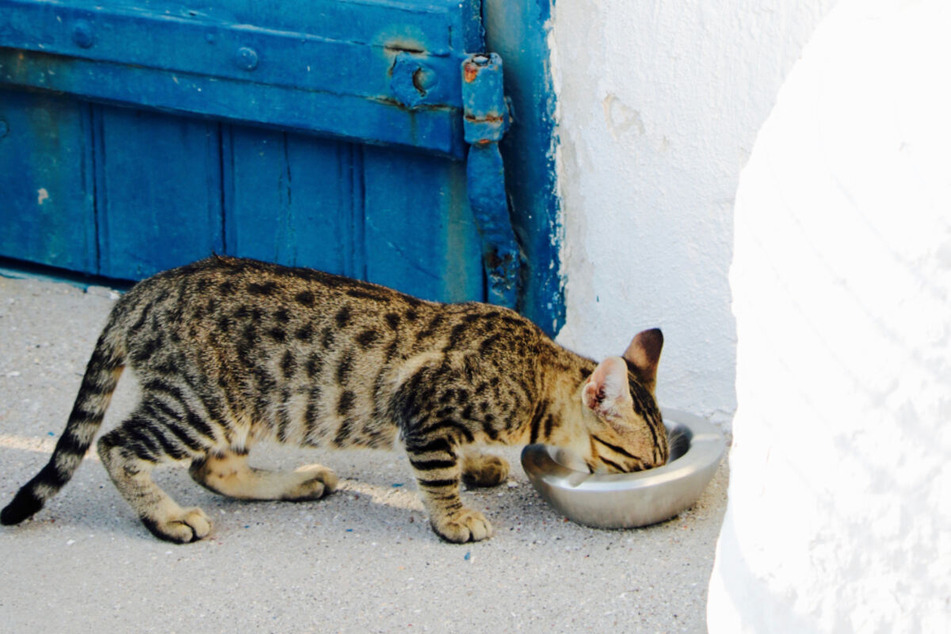
You might be giving your cat too much food
Many cat owners are convinced their pet knows exactly how much food it needs. They think the kitty will decide for itself when it is full and should stop eating. This is not the case, and is a leading cause of cat overeating. Instead, your cat won't know when to stop eating, and might even ask you for more food.
A cat's lifestyle of course plays a role, and you should be asking yourself whether it gets enough exercise, has been neutered, or what kind of food it is being given, but ultimately it is down to portions. Design a proper cat diet and implement it, don't give into the demands of the furry little guys!
Competition with other animals can cause cat overeating
If cats are kept in pairs or groups, this can lead to competition and food envy. Envy and competition will cause your kitty to eat greedily out of fear that there won't be enough left for it. Cats who suffer from food envy are often brazen enough to steal the food of their fellow felines after eating their own.
This problem gets worse when there is only one food bowl that several cats have to share. As a result, if you have more than one cat, or even a cat and a dog, they should all have separate food bowls in separate areas of your home.
Trauma and fear makes cats eat too much
Overeating is often some rooted in your cat's past and any traumas or stress it is experiencing or has experienced. Any neglected cat or kitty that has suffered previous abuses, traumatic moves, major cat-on-cat fights, or feels like its territory is threatened, will overeat as a way to try and improve its strength.
Many cats that were picked up by an animal welfare organization or had to spend time in an animal shelter have gone through unpleasant experiences and some form of trauma. If your cat was originally found on the street, for example, the fear of starvation may still be ingrained in its psychology. As a result, a cat might overeat to stop that feared starvation.
Cat overeating caused by disease
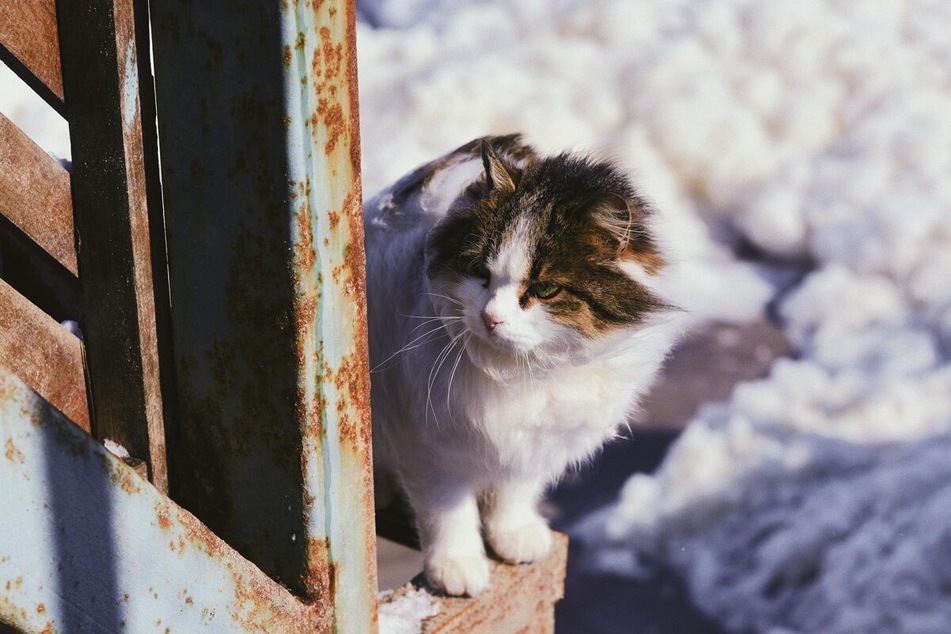
Does your cat show an insatiable appetite despite being socialized? Then there may well be a medical cause, especially if there's unexpected weight loss involved. In addition to parasites such as worms and fleas, which lead to increased food intake, hyperthyroidism and hypothyroidism can be the reason behind overeating. Diabetes, an infection, or other diseases can also be associated with high consumption levels.
Owners who observe abnormalities in their cat's eating and drinking behavior should not hesitate to consult a vet. They can check the cat's health and rule out any disease-related causes. It is critical in these situations to take action quickly and seriously.
Your cat's age, and the season, may impact feline appetites
The season of the year and your cat's age can also play a big role in its appetite. While some cats need less food when they get older, others become hungrier and demand larger portions. On top of that, as the year cools down, cats will eat more and, as the year heats up, they will eat less.
Even if your cat spends most of its time outdoors, its energy needs will vary throughout the year, so you may need to plan for more food during the cold months. It goes without saying that if your cat shows signs of being overweight, you should gradually reduce its food rations again.
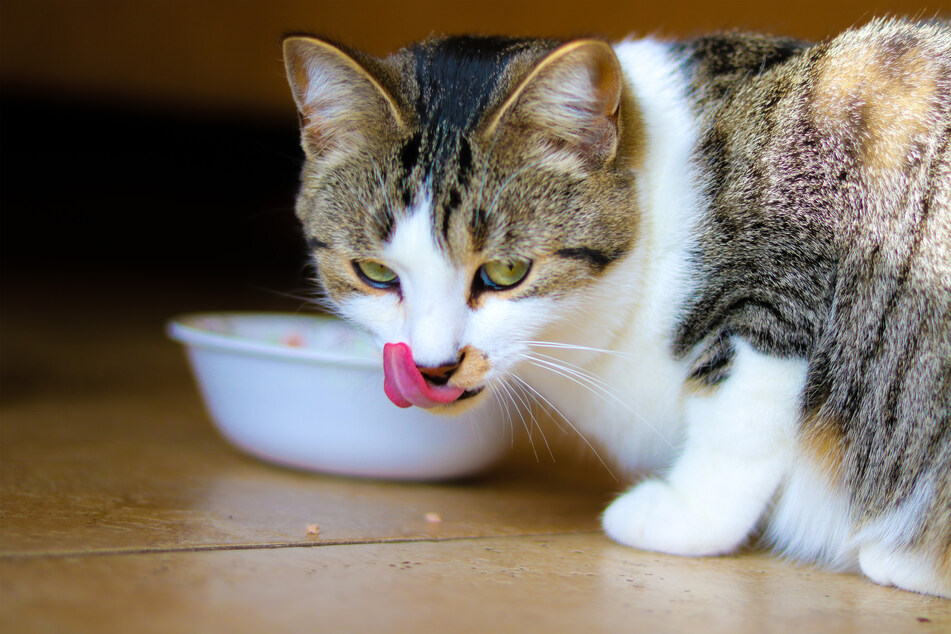
How to stop a cat from eating too much
Long-term overeating can cause serious health problems for cats. As a result, it is important to moderate your kitty's eating and train healthy mealtime behaviors. As with dogs, you should never give in when your cat begs for food. If you cave in when your four-legged friend starts demanding food, you will reward its greedy behavior and see it exhibited repeatedly by your pet.
Instead, you should make sure to feed your cat at fixed meal times every single day. This way you will train it into normal eating behaviors, and force outdoor cats to be more punctual with their timing.
If your cat's food bowl has become empty, it should remain empty until that next fixed meal time comes around the bend. It may be hard to get your cat behaving appropriately at first, but before too long it will acclimatize to this new system.
Here are a few more ways to stop your cat from eating too much food:
- Make sure your cats eat separately: If you have more than one cat, they should eat separately, in different rooms, out of different bowls. This should be kept standardized so that it becomes ritualistic.
- Give smaller portions: Instead of giving your cat all of its food at once, split its portions between multiple meals. Take the can of wet food, halve it, and give it half the food in the morning and half at night. This way it still gets two meals, but it's a smaller overall quantity.
- Get your cat accessories that fight against snacking: There are a variety of cat accessories that will distract them from their want to eat. Speak to your veterinarian or local pet store owner for some recommendations.
There are many sudo-methods out there on the internet, but it is best to keep it simple. If things are getting really, really bad, take your cat to the vet.
Healthy eating makes for a healthy cat
Many cats overeat, and more often than not this is caused by their humans providing far too much food. There are plenty of ways to encourage more moderate eating behavior, but for the sake of your cat's health, you shouldn't take the problem of gobbling down food and being overweight lightly.
Sooner or later, your cat will thank you for taking action. It will become calmer, healthier, and happier, even if it didn't really enjoy being taken to the veterinarian.
Cover photo: Unsplash/Bonnie Kittle
